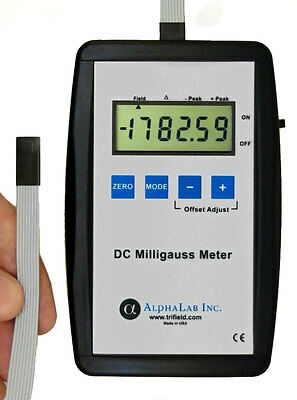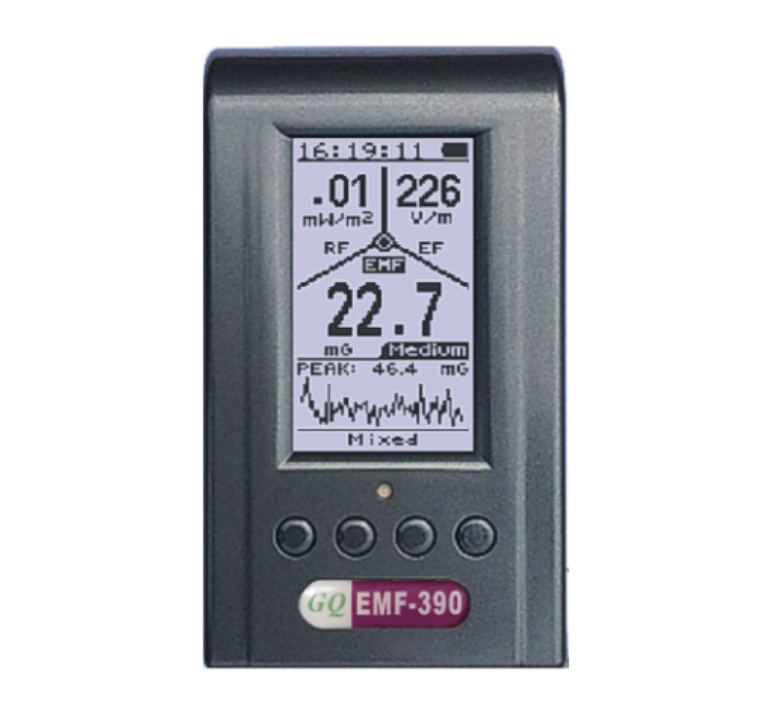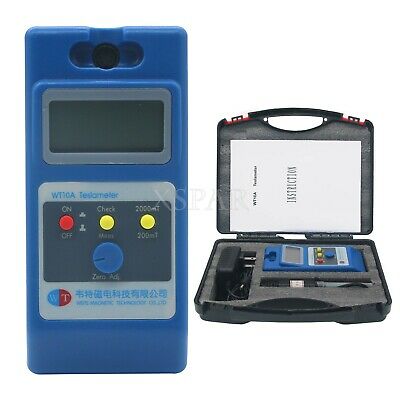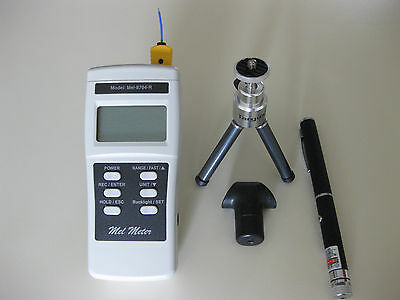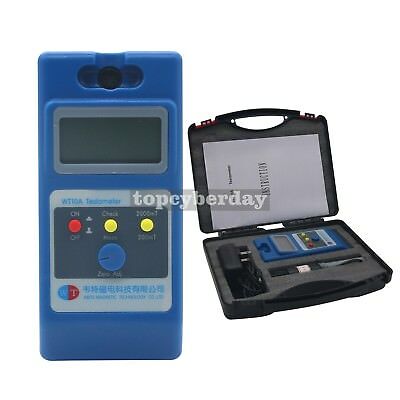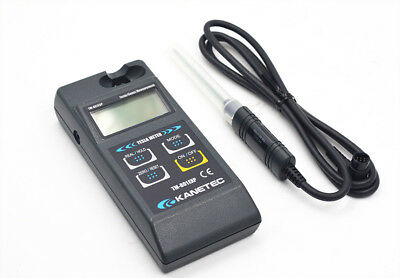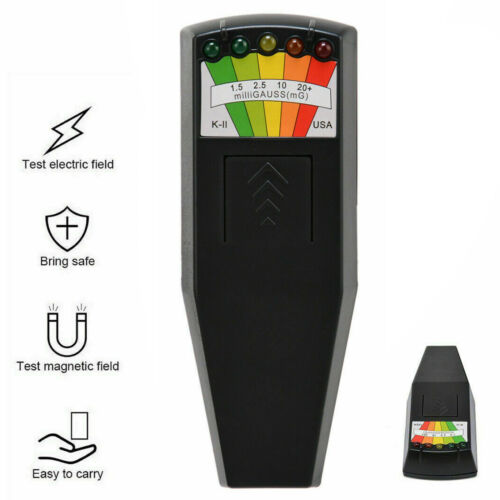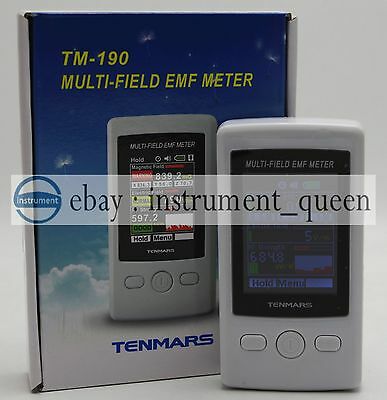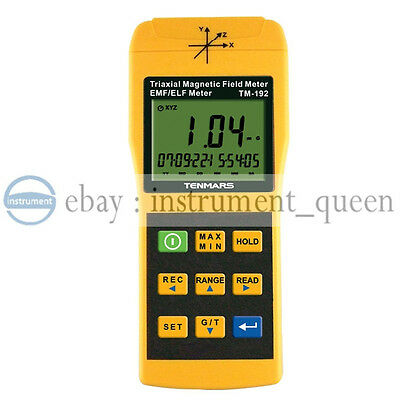-40%
DC MILLIGAUSS METER MAGNETIC MAGNETOMETER TESLA GAUSSMETER
$ 221.76
- Description
- Size Guide
Description
DC Milligauss Meter Model MGMManufactured in the USA by AlphaLab, Inc.
This meter reads weak DC magnetic fields.
DC Milligauss Meter MGM 5
Alignment Options
:
Standard (as in picture): Free, 1 Degree: , 1/10 Degree: 0
MGM Output Jack Description:
The outputs are an analog voltage, with 1 Volt = 1 Gauss +/- 0.5%. Range is +/- 2 gauss (= +/- 2V). Normally, it is a "slow-moving" DC voltage (Valid DC to 3 Hz), but a higher bandwidth can be specified (DC to 300 Hz at the 3 dB point) at no extra cost.
An improvement on the flux gate magnetometer, the
DC Milligauss Meter
measures magnetic fields (technically “flux density”) up to several times the strength of the Earth field. It has a resolution of 0.01 milligauss (1 nanotesla) and a range of +/-2000 milligauss (200 microteslas). The meter's magnetoresistive sensor is a major improvement over an uncompensated fluxgate magnetometer both in cost and stability. In fact, this sensor approaches a proton precession magnetometer in temperature stability. However, at only 1 mm x 0.2 mm, the active sensor area is much smaller than fluxgate magnetometer or proton sensors. This allows very precise magnetic measurements in small areas (such as thin films) or with high gradients, when necessary.
The display has an extra digit compared with most portable magnetometers.
It has 4 ½ digits and it displays in two ranges: +/- 1999.9 and +/- 199.99 milligauss. Update is three times per second. Because the Earth's field is typically about 500 milligauss, three “offset” controls allow you to add or subtract up to 600 milligauss with precision of .01 milligauss. Therefore, the Earth's field can be subtracted out when required. If reading in the more sensitive 199.99 range, this field neutralization feature is often necessary, because the field is usually stronger than 200 milligauss.
The wide dynamic range of the display (19,999 counts; both polarities), along with the large range of offset (+/- 600 milligauss) and high stability of the meter (+/- .01 milligauss), allow for stable detection of small changes in a large background field. On the higher sensitivity range, changes of .01 milligauss can be reproducibly measured in up to +/- 800 milligauss of background field. On the lower sensitivity range, absolute field of .1 milligauss can be measured in up to +/- 1999.9 milligauss of background field.
The sensor is at the end of an eight-wire cable that is normally four feet long, but other custom lengths are available. The sensor is “axial”, which means it detects the component of the field that's in the same direction as the cable points (see photo). The meter reads negative when pointing toward the south pole of a magnet and positive toward north. The small active area of the sensor is in the center of the dark square.
At fixed temperature, reproducibility is +/- 0.01 milligauss (1 nT) and the temperature coefficient of the offset is less than 0.01 milligauss/°C. The temperature coefficient for gain is less than .0015%/°C. As shipped, gain accuracy is +/-0.5% and the meter offset is +/- 0.5 milligauss with all offset knobs set at zero. All specifications are at temperatures 0 to 45°C. Size is approximately 18(high) x 9(wide) x 5(thick) cm. Weight, including battery is 325 grams. See photo for the external sensor dimensions.
Options include: 2 - and 3 - axis sensors; mounting the sensor on a block to +/- 1 degree precision +/-1/10 degree available as an option); an internal sensor; and an output jack.
